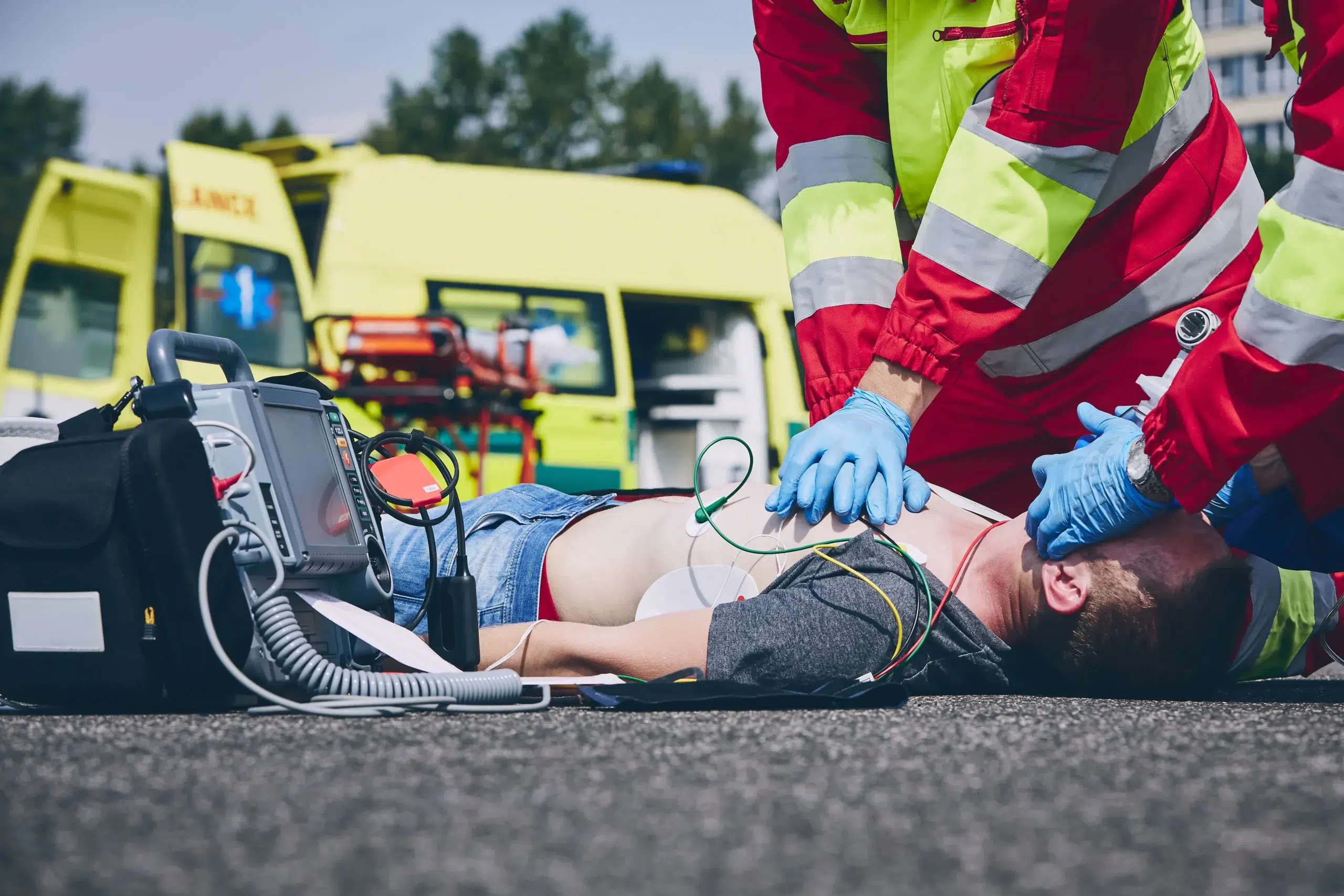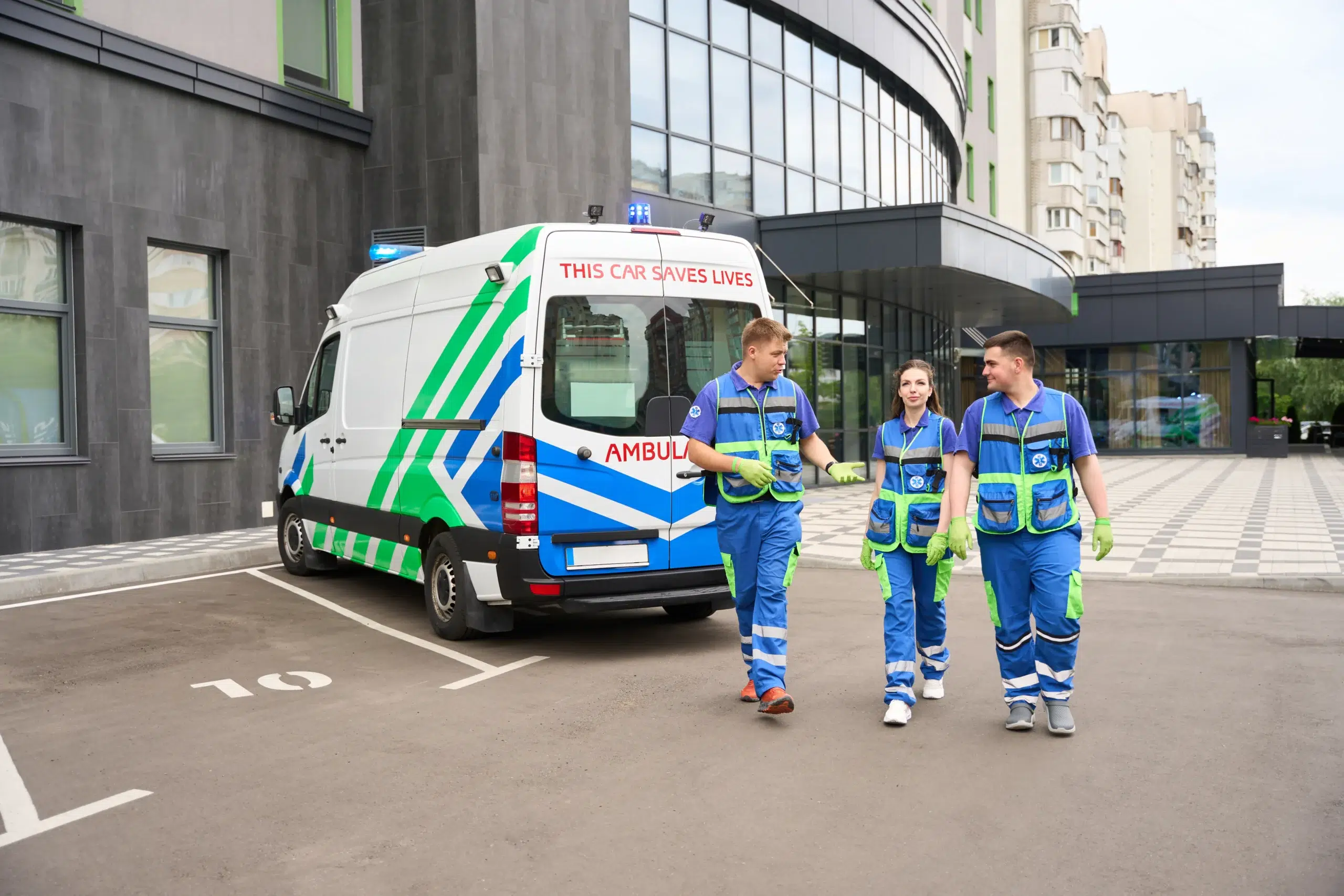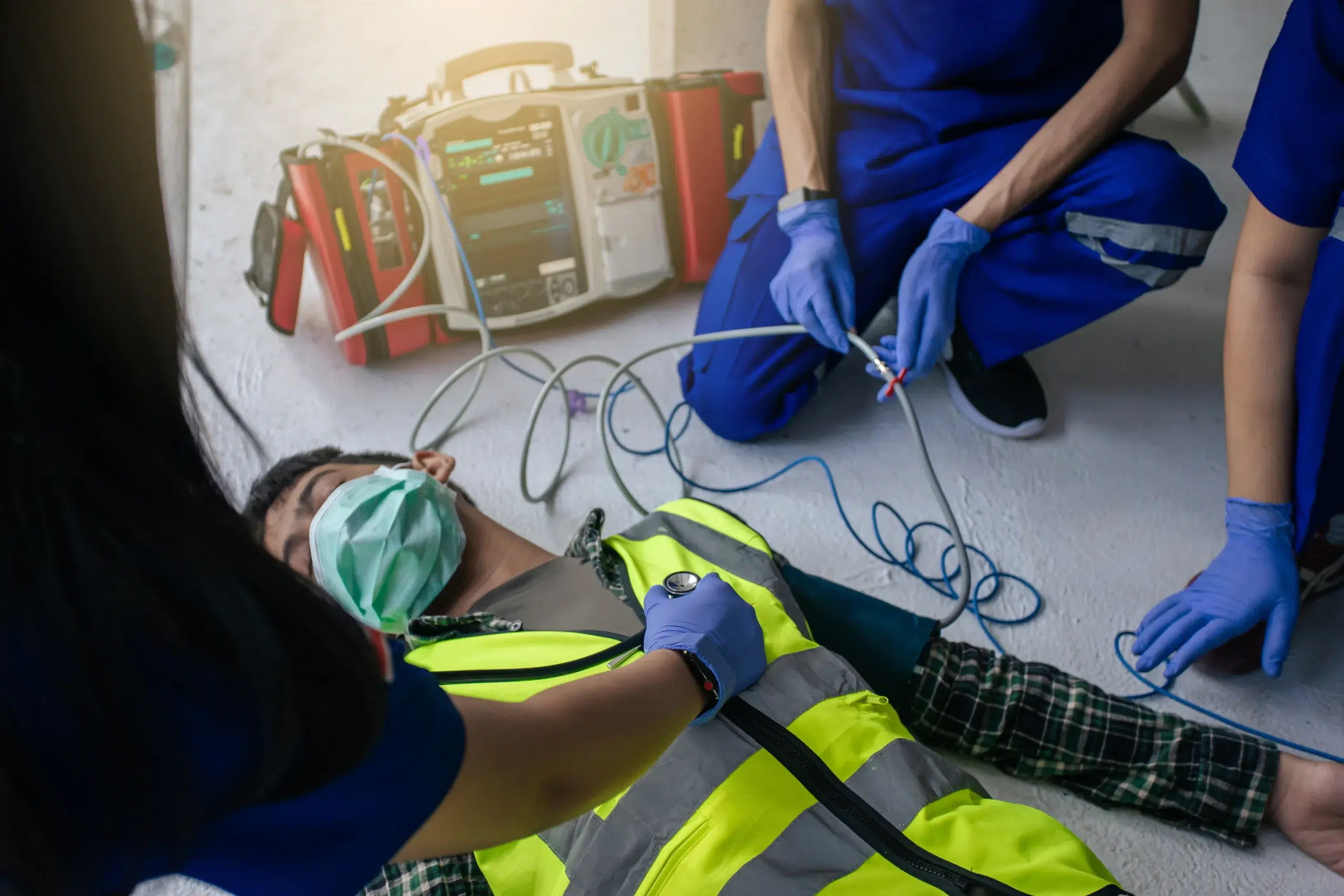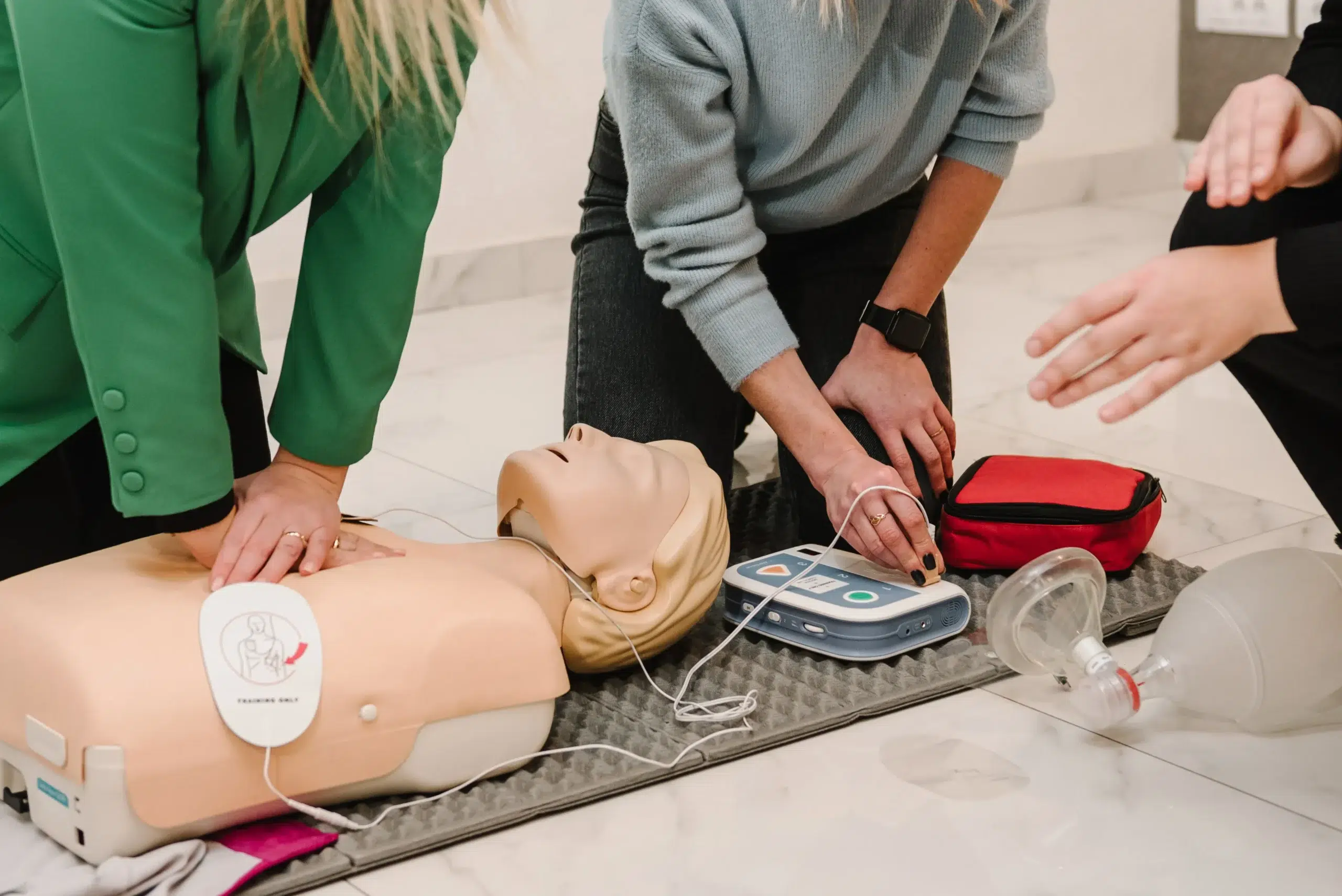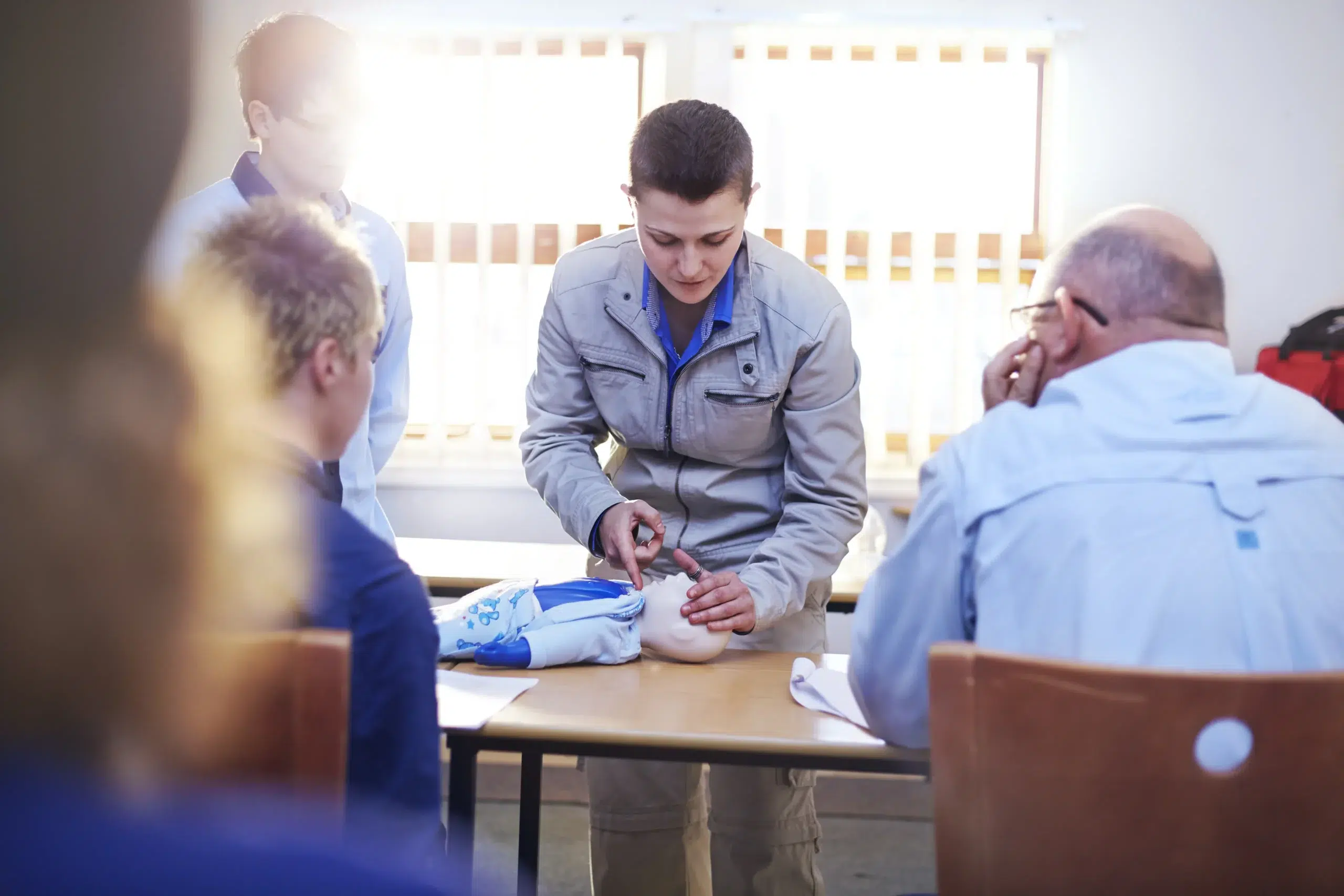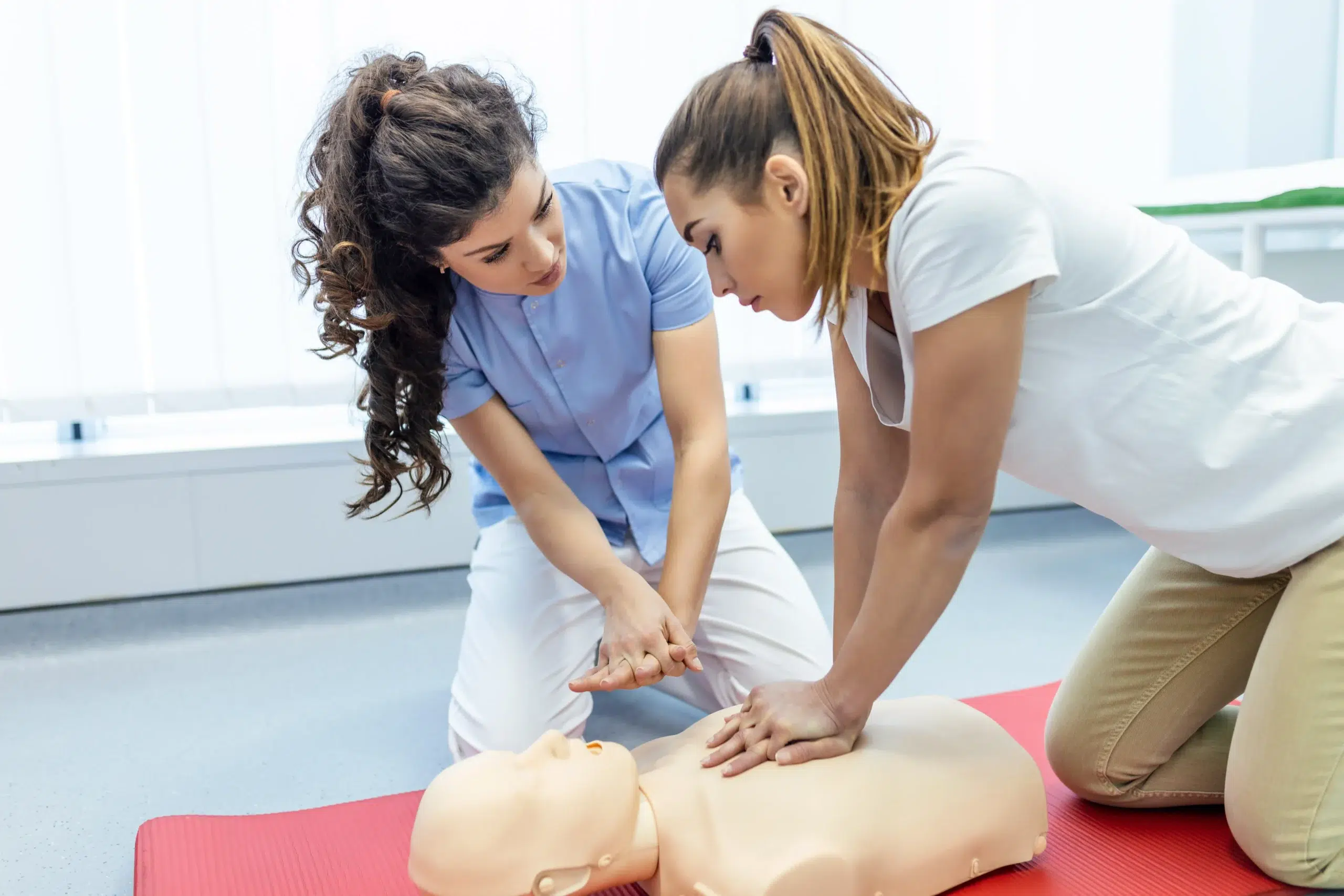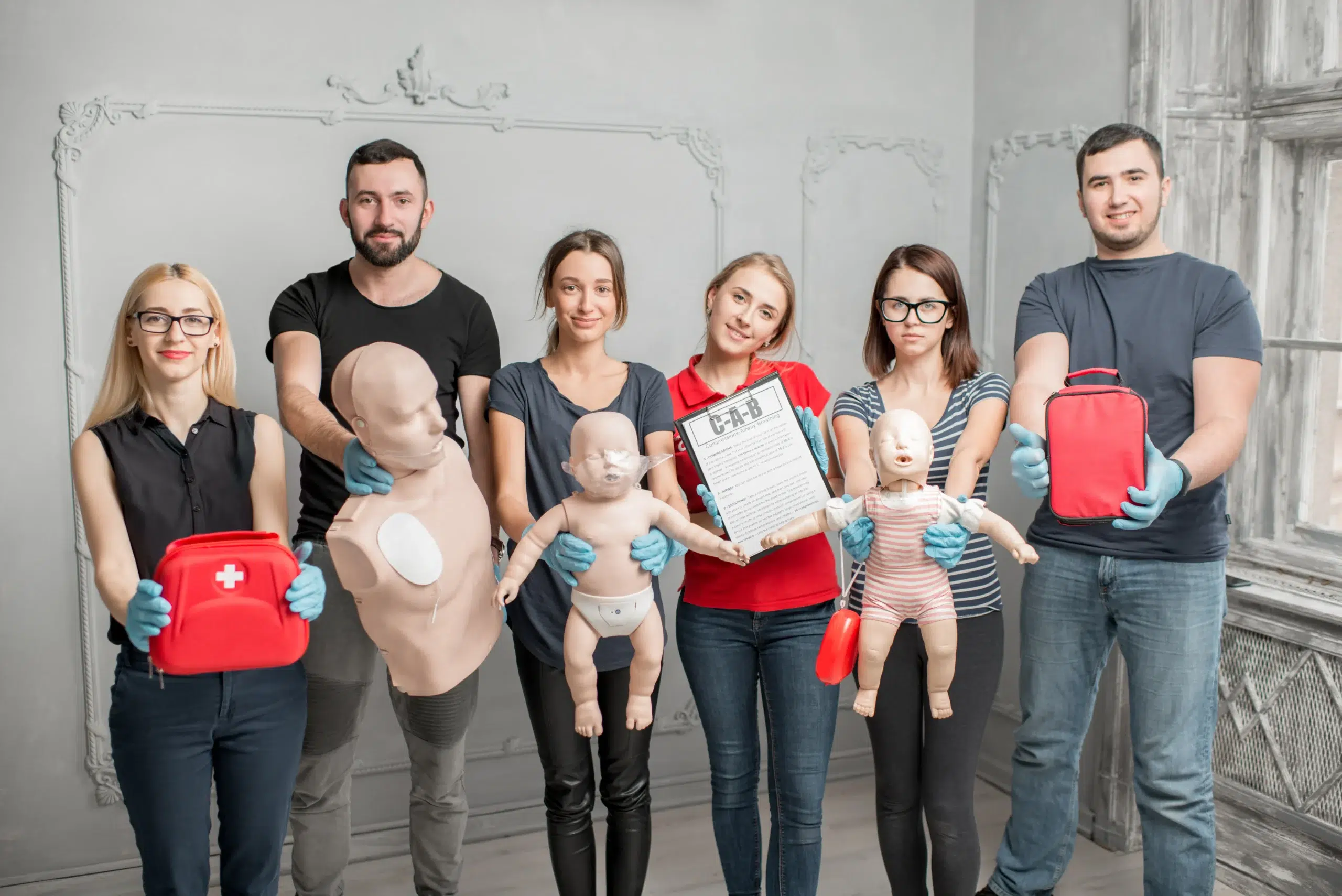Faced with a medical emergency, would you know what to do? CPR certification equips you with the knowledge and skills to respond effectively, potentially saving a life. This comprehensive guide explores the world of CPR certification, covering everything from basic CPR and AED use to more specialized training like BLS and ACLS. We’ll also discuss how to find “CPR certification near me,” address common concerns about getting certified, and delve into the lasting value of this essential skill. Whether you’re a healthcare professional, a concerned parent, or simply someone who wants to be prepared, this post is for you.
Key Takeaways
- CPR certification equips you with life-saving skills: Whether for personal or professional reasons, CPR training empowers you to respond effectively in medical emergencies, giving you the confidence to act when it matters most. Choose a course that aligns with your individual needs and goals.
- Various CPR courses cater to different needs: Explore the range of options available, from basic CPR and AED training for the community to advanced certifications like BLS and ACLS for healthcare providers. Select the course that best suits your situation and career path.
- Pleasant Hill CPR Classes offers accessible, high-quality training: Serving Walnut Creek, Concord, and Pleasant Hill, they provide a variety of AHA-certified courses, including convenient RQI programs for medical professionals, all with a low-price guarantee.
What is CPR Certification?
CPR certification proves you know how to perform cardiopulmonary resuscitation (CPR) and other life-saving techniques. It’s essential for healthcare professionals, first responders, and anyone who wants to be prepared for an emergency. Getting CPR certified not only gives you the skills to potentially save a life, but also the confidence to handle intense situations. We encourage you to contact us to learn more about how CPR certification can benefit you.
Organizations like the American Heart Association (AHA) and the Red Cross offer credible CPR certification courses. These courses usually cover the basics: recognizing cardiac arrest, performing chest compressions, giving rescue breaths, and using an Automated External Defibrillator (AED). To get certified, you’ll typically complete a training course and pass a skills assessment. This ensures you can perform CPR effectively under pressure. Check out our low price guarantee.
Different CPR courses are designed for different needs. Basic life support (BLS) courses are great for the general public, while more advanced courses like Advanced Cardiac Life Support (ACLS) cater to healthcare providers. You can find information on our BLS course here. We also offer an RQI program for healthcare professionals looking for an efficient way to maintain their certification.
CPR Certification Courses
CPR certification gives you the skills to respond effectively during medical emergencies. Different certification levels address various needs and professional requirements. Let’s explore some of the key CPR certification courses available.
BLS for Healthcare Providers
Basic Life Support (BLS) certification is essential for healthcare professionals like doctors, nurses, paramedics, and other medical personnel. This course offers advanced training in CPR and AED use for adults, children, and infants. BLS also emphasizes teamwork, high-quality chest compressions, and effective ventilation techniques. A BLS certification is typically valid for two years. Learn more about our BLS certification course.
Heartsaver CPR AED
Heartsaver CPR AED training is designed for anyone who wants to learn CPR and how to use an AED. This course suits community members, teachers, coaches, and workplace responders. It focuses on essential life-saving skills for adults, children, and infants, giving people the confidence to act during emergencies.
PALS
Pediatric Advanced Life Support (PALS) certification expands on BLS skills, focusing on the specific needs of infants and children. This advanced course is essential for healthcare providers working in pediatrics, emergency medicine, and intensive care units. PALS training covers a wide range of pediatric emergencies, including respiratory distress, cardiac arrest, and shock.
ACLS
Advanced Cardiac Life Support (ACLS) certification is another advanced course designed for healthcare professionals who manage cardiovascular emergencies. Building on BLS and often PALS, ACLS covers advanced life support techniques, including airway management, rhythm recognition, and pharmacology. This training is vital for physicians, nurses, paramedics, and other healthcare providers in critical care settings. Our RQI program offers a streamlined way for healthcare professionals to maintain their ACLS certification.
Choose the Right CPR Certification Course
So, you’re ready to learn CPR? Great! Choosing the right CPR certification course is the first step. Finding one that aligns with your specific needs and goals is key. Let’s break down how to do just that.
Assess Your Needs
First, think about why you’re pursuing CPR certification. Are you required to have it for your job, or are you learning for personal growth? Do you need a general CPR and AED course like the Heartsaver course, or are you a healthcare provider who needs more specialized training? Understanding your motivation will guide you toward the right course level. When evaluating programs, always check for accreditation and certification from a recognized organization like the American Heart Association. This ensures the training meets nationally recognized standards, and your certification will be widely accepted.
Meet Professional Requirements
Many professions require specific CPR certifications. For example, healthcare professionals, including nurses, doctors, paramedics, and first responders, typically need BLS certification. BLS (Basic Life Support) covers core CPR skills and is often a prerequisite for more advanced certifications like ACLS (Advanced Cardiovascular Life Support) or PALS (Pediatric Advanced Life Support). If your workplace mandates a particular certification, double-check those requirements before registering for a course. You can usually find this information in your job description or employee handbook or by checking with your supervisor or human resources department.
Define Personal Goals
Even if you’re not pursuing CPR certification for professional reasons, defining your personal goals is still important. Are you a parent wanting to be prepared for emergencies at home? A coach looking to enhance safety on the field? Or maybe you simply want the peace of mind that comes with knowing how to save a life. Whatever your reason, consider the qualifications of the instructors and the credibility of the training provider. Look for experienced instructors with a passion for teaching and a proven track record. Pleasant Hill CPR Classes, for example, emphasizes customer service and offers a low-price guarantee, ensuring you receive high-quality training at an affordable price.
Top CPR Certification Organizations
Several respected organizations offer CPR certification. Understanding their different approaches can help you choose the best fit.
American Heart Association
The American Heart Association (AHA) is a leader in CPR training and education. They emphasize regular practice to maintain essential skills. AHA research suggests a refresher course a few months after your initial training can help combat skill decline. This demonstrates the AHA’s commitment to ensuring people are prepared for emergencies. For healthcare providers, the AHA’s BLS course is often a job requirement.
Pleasant Hill CPR Classes
Pleasant Hill CPR Classes offers a range of CPR certification options, from basic life support for community members to advanced training for healthcare professionals. They know cost is a consideration and recommend comparing options to find what works for you. Pleasant Hill CPR Classes specializes in convenient and efficient RQI programs designed for medical professionals. Serving Walnut Creek, Concord, and Pleasant Hill, they provide a low price guarantee. Contact them to learn more about their courses.
American Red Cross
The American Red Cross is known for its comprehensive CPR training. They offer flexible learning options, with classes available online, in person, or a blended format combining both. This makes getting certified easier, regardless of your schedule.
National Safety Council
The National Safety Council (NSC) provides various CPR and first aid training courses. They offer programs for different audiences, including workplaces and community groups. The NSC focuses on equipping people with the skills and confidence to handle emergencies through their CPR and AED training.
CPR Certification Costs & Financial Aid
CPR certification costs in Pleasant Hill, CA, vary based on several factors, including the type of course, the training provider, and whether you’re taking a class individually or as part of a group. It’s smart to compare prices and explore available options to find a course that fits your budget.
Average Course Fees
Expect to pay somewhere between $70 and $100 for basic CPR and First Aid certification. More advanced courses like BLS for Healthcare Providers or ACLS typically run a bit higher. For the most current pricing, check directly with your chosen provider.
Discounts & Group Rates
Many training centers, including Pleasant Hill CPR Classes, offer discounts for group bookings and returning students. This can be a great option if you’re coordinating training for your workplace or a group of friends and family members. Pleasant Hill CPR Classes offers various American Heart Association courses, including CPR, BLS, ACLS, PALS, NRP, EMSA, and First Aid certifications. They also provide initial certification and renewal courses for various certifications, including BLS, ACLS, and PALS. Contact them directly to learn more about group rates and available discounts.
Pleasant Hill CPR Classes’ Low Price Guarantee
Pleasant Hill CPR Classes offers a low-price guarantee, ensuring you receive high-quality training at a competitive price. As an authorized American Heart Association training center with decades of experience, they provide RQI programs and BLS training tailored to healthcare professionals and groups. This commitment to affordability makes them a great choice for cost-effective CPR certification.
Financial Aid & Scholarships
While less common for CPR certification than other educational programs, some organizations may offer financial assistance or scholarships for those who qualify. It’s always worth inquiring with your chosen training provider about potential financial aid options. Addressing cost concerns is essential to ensure more people can access this life-saving training.
CPR Certification Duration & Renewal
Course Length
CPR certification involves completing a training course covering essential life-saving skills, like recognizing medical emergencies, performing CPR and using an AED, and providing basic first aid. The time commitment varies depending on the specific course and the certifying organization. A basic CPR and AED course might take a few hours, while a more comprehensive course, such as BLS for Healthcare Providers, could require a full day. Pleasant Hill CPR Classes offers a variety of courses to fit your schedule, including convenient daily options. Contact us to learn more about course lengths and schedules.
Certification Validity
CPR certifications are typically valid for two years. This timeframe helps ensure individuals maintain current knowledge and skills in performing CPR and other life-saving techniques. It’s important to keep track of your certification’s expiration date to maintain current skills and comply with any workplace or professional requirements. Check your certification card for the exact expiration date.
Renew Your Certification
You’ll need to take a renewal or refresher course before your certification expires. This process keeps your skills sharp and aligned with the latest guidelines. Renewal courses cover the same core material as the initial certification course, often with updated information and techniques. Start the renewal process several months before your certification expires. Don’t delay your refresher training beyond seven months to avoid a lapse in your certification. Pleasant Hill CPR Classes offers various renewal courses, including our specialized RQI programs for medical professionals seeking an efficient recertification process. These programs offer flexible, performance-based training that adapts to each learner’s needs.
What Happens in a CPR Class?
CPR certification classes equip you with the skills to respond effectively during medical emergencies. They blend theory, hands-on practice, and assessment to ensure you’re prepared to act confidently. Here’s a glimpse of what you can expect:
Course Content
CPR classes cover a range of life-saving techniques. You’ll learn to recognize the signs of medical emergencies, from heart attacks and strokes to choking and drowning. The curriculum typically includes adult, child, and infant CPR, along with how to use an automated external defibrillator (AED). Many courses also incorporate basic first aid training for handling injuries like sprains, strains, burns, and shock. Some courses, like those offered at Pleasant Hill CPR Classes, also cover respiratory problems and the use of epi-pens.
Hands-on Practice
Theory is essential, but practical experience is key to mastering CPR. Classes provide ample opportunity for hands-on practice using training mannequins. This allows you to develop the muscle memory and coordination needed to perform compressions and rescue breaths effectively. The use of mannequins with electronic feedback, like those used in RQI programs, offers real-time feedback on your technique, helping you refine your skills and build confidence. This interactive approach makes learning more engaging and ensures you’re fully prepared for real-life scenarios.
Assessment & Certification
To earn your CPR certification, you’ll need to demonstrate proficiency in the skills taught during the course. This typically involves a skills test where you perform CPR and other techniques on a mannequin. Once you successfully complete the assessment, you’ll receive your certification, which is usually valid for two years. Renewal courses are available to maintain your certification and keep your skills current. Remember, the requirements for different certifications, such as BLS (Basic Life Support) and ACLS (Advanced Cardiovascular Life Support), vary, so choose a course that aligns with your specific needs.
Find CPR Certification Courses Near You
Finding the right CPR certification course requires a little research to ensure it aligns with your personal and professional needs. Here’s how to find a course that checks all the boxes:
Online Course Locators
Online course locators can be helpful starting points. Websites like the American Heart Association and the American Red Cross offer search tools to find certified courses near you. Keep in mind that these tools may not list every training provider, so supplement your search with additional resources. When evaluating programs, check for proper accreditation and certification. These organizations ensure the training meets high standards and the certification is widely recognized. If you’re considering online CPR training, make sure the program is credible and accepted by your employer, if required for your job. A good program will cover the same material as an in-person class and offer ways to practice your skills.
Local Community Resources
Reach out to local hospitals, community centers, and fire departments. These organizations often offer CPR certification courses or can connect you with certified instructors. Pleasant Hill, for example, offers a range of CPR certifications, from basic life support for everyday emergencies to advanced training for healthcare professionals. Safety Training Seminars also offers various American Heart Association courses in Pleasant Hill, including CPR, BLS, ACLS, PALS, NRP, EMSA, and First Aid certifications. Don’t underestimate the power of word-of-mouth—ask friends, family, and colleagues for recommendations.
Employer Requirements
If you need CPR certification for your job, check with your employer about specific requirements. Some employers may require certification from a particular organization or mandate in-person training. Online-only CPR certifications may not meet the requirements of all employers or state regulations. Remember, the true measure of CPR training effectiveness lies in your ability to apply your knowledge and skills, so choose a program that emphasizes hands-on practice and realistic scenarios. MyCPR NOW offers insights into how to measure and evaluate CPR effectiveness.
Address CPR Certification Concerns
Getting your CPR certification is a rewarding experience, but it’s normal to have some concerns before your first class. Let’s address some common worries and look at how you can feel prepared and confident.
Overcome Fear & Anxiety
It’s okay to feel a little anxious, especially if you’re not used to medical training. Many people worry about not performing well or passing the certification exam. Know that most CPR instructors create a supportive learning environment. Plus, many training providers offer remediation sessions to help you improve your skills. Remember, the goal is to learn these lifesaving techniques, and instructors are there to guide you.
Manage Physical Demands
CPR involves physical activity, like kneeling and performing chest compressions. Knowing the physical requirements beforehand can help you prepare. For example, you’ll likely be kneeling on the floor to practice compressions, so wear comfortable clothing. If you have any physical limitations, talk to your instructor before class. They can offer modifications or suggestions.
Build Confidence
One of the best ways to build confidence is through practice and feedback. Many CPR courses use training devices with feedback features. Pay attention to this device feedback because it provides valuable insights into the quality of your compressions. Understanding how this feedback works is key to improving your skills and feeling confident in your ability to perform CPR effectively. Pleasant Hill CPR Classes prioritizes hands-on training and feedback.
The Value of CPR Certification
CPR certification gives you the skills to respond effectively during emergencies. It’s about more than just technical knowledge—it’s about empowering you to act decisively and potentially save a life. Knowing how to perform CPR can make all the difference in critical situations, increasing the chances of survival for someone experiencing cardiac arrest or other life-threatening conditions. For residents in and around Pleasant Hill, CPR certification is readily accessible.
Beyond the practical skills, CPR training instills confidence. It empowers you to take action when it matters most, transforming you from a bystander into a potential lifesaver. This confidence can extend beyond emergency situations, influencing how you approach challenges in other areas of your life. Effective training methods often incorporate tools and techniques that provide immediate feedback, increasing engagement and motivation to master high-quality CPR. This hands-on approach, like the one used at Pleasant Hill CPR Classes, ensures you’re not just learning the steps but truly understanding how to perform CPR effectively.
Related Articles
- Why CPR is Vital for Healthcare and Public Safety
- CPR Certification in Pleasant Hill: A Complete Guide
- CPR Courses in Pleasant Hill: Find the Right Class – Pleasant Hill CPR Classes
- AHA Walnut Creek: Your Guide to CPR Certification – Pleasant Hill CPR Classes
- BLS Renewal in Concord: Your Complete Guide – Pleasant Hill CPR Classes
Frequently Asked Questions
What’s the difference between BLS and Heartsaver CPR/AED?
BLS (Basic Life Support) certification is designed for healthcare providers and those in professional rescuer roles. It covers a broader range of skills, including team dynamics and advanced airway management. Heartsaver CPR/AED, however, focuses on essential CPR and AED skills for the general public and those in workplaces requiring basic life support training. Think of BLS as the more comprehensive, specialized course, while Heartsaver provides foundational knowledge and skills for anyone.
How long does it take to get CPR certified?
The time commitment varies depending on the specific course. A basic CPR/AED course can often be completed in a single afternoon or evening, while more advanced courses like BLS or ACLS may require a full day of training. Check with your chosen training provider for their specific course schedules and durations.
How much does CPR certification cost?
Costs vary based on the course type, location, and training provider. Basic CPR courses typically range from $70 to $100. More specialized courses like BLS and ACLS are usually more expensive. Look for training centers that offer discounts for groups or returning students. Pleasant Hill CPR Classes, for example, offers a low-price guarantee.
How often do I need to renew my CPR certification?
Most CPR certifications are valid for two years. To maintain your certification and stay up-to-date with the latest guidelines, you’ll need to take a recertification course before your current certification expires. Don’t wait until the last minute – start looking into renewal options several months before your expiration date.
What if I’m nervous about performing CPR in a real emergency?
It’s completely normal to feel apprehensive about using your CPR skills in a real-life situation. Remember that the purpose of the training is to prepare you both mentally and physically. Hands-on practice during the course helps build muscle memory and confidence. Focus on the fact that you’re learning valuable skills that could potentially save someone’s life.
